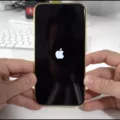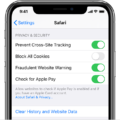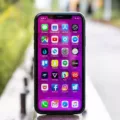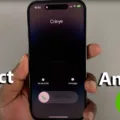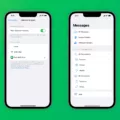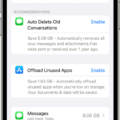One of the features that iPhones with iOS 11 or later offer is the ability to offload apps. Offloading apps means that the iPhone will automatically remove apps that it deems as too large or not used frequently enough to save storage space on your device. This can be a useful feature for those who are running low on storage and want to free up some space.
The offloading process is done automatically by the iPhone without any input from the user. It analyzes the size of the app and how often it is used to determine whether it should be offloaded or not. This can be particularly helpful for apps that are rarely used but still take up a significant amount of storage on your device.
To turn offload unused apps on or off, you can follow these simple steps:
1. Go to the “Settings” app on your iPhone.
2. Scroll down and tap on “iTunes & App Store.”
3. Scroll down again and look for “Offload Unused Apps.”
4. Tap on the toggle switch next to “Offload Unused Apps” to turn the feature on or off.
If the toggle switch is green, it means that the feature is turned on and your iPhone will automatically offload unused apps. If it is gray, the feature is turned off and your apps will not be offloaded.
It is important to note that offloading an app does not delete the app permanently from your device. The app icon will still be visible on your home screen, but it will have a cloud icon next to it. If you want to use the app again, simply tap on the app icon and it will be reinstalled on your device.
If you prefer to keep all of your apps permanently and do not want your iPhone to offload any apps, you can disable the offload unused apps feature by following the steps above and turning off the toggle switch.
Additionally, if you want to prevent anyone from deleting apps on your iPhone, you can set up restrictions in the Settings app. Go to “Settings,” then “Screen Time,” “Content & Privacy Restrictions,” “iTunes & App Purchases,” and finally “Deleting Apps.” From there, you can select “Don’t allow” to prevent anyone from deleting apps on your device.
Offloading apps on your iPhone can be a useful feature to save storage space by automatically removing apps that are not frequently used. However, if you prefer to keep all of your apps permanently or want to prevent anyone from deleting apps on your iPhone, you can easily disable the offload unused apps feature or set up restrictions in the Settings app.
Why Does Your iPhone Keep Offloading Apps?
There are several reasons why your iPhone may keep offloading apps. Here are the main factors that contribute to this:
1. Limited Storage Space: iPhones come with a fixed amount of storage space, and as you install more apps and accumulate data, your available storage decreases. To optimize storage, iOS 11 and later versions automatically offload apps that are not frequently used or deemed as large. By doing so, your iPhone can free up space for more important files and apps.
2. Infrequent App Usage: If you have apps on your iPhone that you rarely use, iOS will identify them as candidates for offloading. These apps are not completely removed from your device; instead, the app icon remains, but the app’s data is deleted. This way, when you need to use the app again, iOS will reinstall it, and you can continue where you left off.
3. App Size: Some apps can be quite large in size, taking up a significant amount of storage space on your iPhone. To manage storage efficiently, iOS may choose to offload these larger apps to make room for other apps or files that you use more frequently.
4. Automatic Offloading Settings: It is also possible that you have enabled the “Offload Unused Apps” feature in your iPhone’s settings. This feature allows iOS to automatically offload apps that you haven’t used in a while. You can adjust this setting by going to “Settings” > “iTunes & App Store” > “Offload Unused Apps” and toggle the switch as per your preference.
5. Low Storage Warnings: If your iPhone’s storage is running critically low, iOS may automatically offload apps to prevent you from encountering storage-related issues. This is a proactive measure to ensure your device runs smoothly and doesn’t become sluggish due to lack of available storage.
To summarize, your iPhone keeps offloading apps to free up storage space and optimize performance. This process is done automatically by iOS based on factors like app usage frequency, app size, and available storage space. By offloading apps, your iPhone ensures that you have sufficient space for important files and apps that you use regularly.
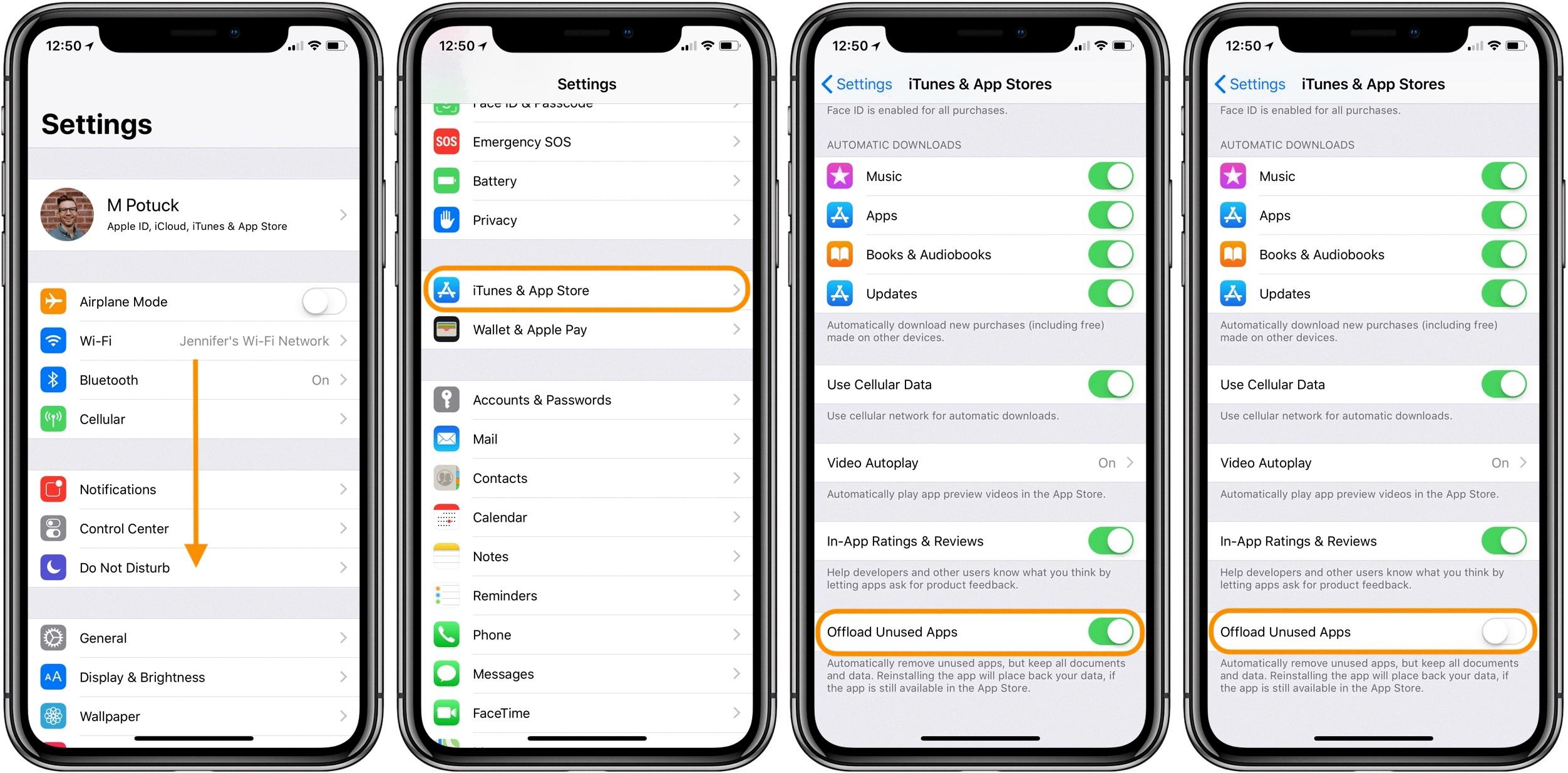
How Do You Turn Off Offload Apps On iOS 15?
To turn off offload apps on iOS 15, follow these steps:
1. Locate and tap the “App Store” icon on your device’s home screen.
2. Once you’re in the App Store, tap on your profile picture or initials at the top right corner of the screen.
3. In the Account window that appears, scroll down and find the “Offload Unused Apps” option.
4. To turn off offload apps, tap on the indicator next to “Offload Unused Apps” so that it is no longer highlighted or switched on.
5. If you want to turn on offload apps in the future, simply tap on the indicator again to enable the function.
6. Once you’ve made your desired selection, swipe upwards starting from the bottom of the screen to return to the home screen.
Please note that turning off offload apps means that your device will not automatically remove unused apps to free up storage space. It’s worth considering if you have limited storage or if you frequently switch between apps.
How Do You Stop Apps From Auto Offloading?
To stop apps from auto-offloading on your device, you can follow these steps:
1. On your device, go to the Settings app. You can usually find it on your home screen or in the app drawer.
2. Once in the Settings app, scroll down and tap on “iTunes & App Store.” This option is usually towards the top of the list.
3. Scroll down further until you see the “Offload Unused Apps” section. This feature is designed to automatically remove apps that you rarely use in order to free up storage space on your device.
4. By default, this feature is usually enabled. To turn it off and prevent apps from automatically offloading, simply toggle the switch next to “Offload Unused Apps” to the off position.
5. Once you have turned off the “Offload Unused Apps” feature, all of your apps will remain on your device permanently unless you manually delete them.
It’s important to note that disabling this feature may result in your device having less available storage space over time, especially if you have a large number of apps installed. If you find that you are running out of storage space, you may want to consider manually removing apps that you no longer use instead of relying on the automatic offloading feature.
To manually delete apps from your device, simply press and hold on the app icon until the icons start shaking. Then, tap the “x” button that appears on the corner of the app icon to delete it.
By following these steps, you can prevent apps from auto offloading and keep all of your apps permanently on your device.
How Do You Stop Your iPhone From Deleting Apps?
To prevent your iPhone from deleting apps, you can enable content and privacy restrictions in the settings. Here’s a step-by-step guide on how to do it:
1. Open the Settings app on your iPhone.
2. Scroll down and tap on “Screen Time.”
3. If you haven’t set up Screen Time before, tap on “Turn On Screen Time.” If you have already set it up, skip to the next step.
4. Tap on “Continue” and select “This is My iPhone” or “This is My Child’s iPhone,” depending on who the device belongs to.
5. Set a Screen Time passcode, which will be used to access and change the restrictions. Make sure it’s something you can remember, but not easily guessed by others.
6. Once the passcode is set, you’ll be taken to the Screen Time menu. Tap on “Content & Privacy Restrictions.”
7. If the restrictions are already enabled, you’ll be prompted to enter the passcode. Otherwise, tap on “Enable Restrictions” and enter the passcode when prompted.
8. Scroll down and tap on “iTunes & App Store Purchases.”
9. Under the “Deleting Apps” section, select “Don’t Allow.”
By following these steps, you have successfully enabled restrictions to prevent your iPhone from deleting apps. Now, whenever you try to delete an app, you will be prompted to enter the Screen Time passcode. This adds an extra layer of security and prevents accidental deletion of apps.
Remember, this feature helps protect your apps from being deleted, so make sure to keep your passcode secure and easily accessible to you.
Conclusion
IPhones automatically offload apps to save storage space and optimize device performance. This feature, available on iOS 11 or later, identifies apps that are either too large or not frequently used and removes them from the device. By offloading these apps, users can free up valuable storage space and ensure smoother device operation.
To turn offload unused apps on or off, users can go to the App Store in their iPhone’s settings, toggle the “Offload Unused Apps” function on or off. By doing so, users can choose whether they want their iPhone to automatically offload apps or keep all apps permanently.
Additionally, users can set up restrictions in the settings to prevent accidental deletion of apps. By navigating to Settings, then Screen Time, Content & Privacy Restrictions, and iTunes & App Purchases, users can select “Deleting Apps” and choose the option “Don’t allow.” This ensures that apps cannot be deleted without explicit permission.
The ability to offload unused apps on iPhones provides a convenient way to manage storage and improve device performance. By utilizing this feature, users can have more control over their app usage and ensure that their iPhones are running smoothly.

